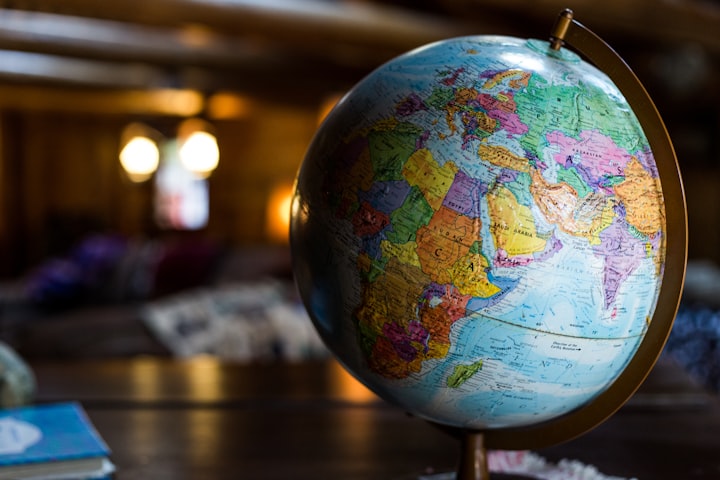Future of World Economy
What is the future of world economy like?

Economic growth, structural change, and the future of the global economy are analyzed in this book. The US global economic report is expected to decline, with China by 2024 becoming the world's largest economy, and developing countries are experiencing new challenges as the global economic system enters a more fragmented phase. The real question is not whether the global economy will emerge from a devastating crisis and whether it will be largely driven by increased employment growth and income to avoid a return to inflation and the crippling burden of increased debt.
PCW's Global Economic Trends forecast, entitled The World to 2050, provides a series of forecasts of the world's largest economic growth rates from ten to ten years. Conditional predictions of economic developments in major world markets and countries since 2000 have been provided.
According to World 2050 by the international consulting firm PwC, six of the world's seven largest economies in 30 years will be developing economies surpassing the United States (falling from 2 to 3), Japan (falling from 4 to 8), and Germany (which could have fallen from 5 to 9). The global economy will accelerate by 2021, but there will be significant global fluctuations. Ten years of slower economic growth in a developed economy means that developing Asia will continue to report on the growing global economic share.
The US economy is expected to operate at 5.9 percent this year, the eurozone at 7.5 percent, and China at 1.2 percent. This year, global growth is expected to rise to 5.6% driven by the strength of major economies such as the United States and China. Despite this acceleration, global GDP is still expected to be below 3.2% below the predictable epidemic by 2021, and GDP in many developing and developing countries is long below the high level from pre-COVID-19.
The World Bank predicts that the global economy by 2020 will fall by 5.2 percent despite high levels of government investment. Growth in developing and developing countries is expected to decline to 4.7% by 2022 as governments withdraw their political support.
At the same time, the BRICS economy has increased from 19.3% to more than 30.8% of the world's population2. Developing countries have become new competitors to the global economy over the years. Only one country in each region had a stronger economy by 2020 than before the epidemic. These countries can compensate for the economic damage caused by renewable energy packages that support the flexibility of their acquisition economies.
Based on UN statistics, historical data, and economic theory, PwC forms a complex model of how the world economy will change in the first half of the 21st century.
First, China will overtake the United States by gross domestic product (GDP) by 2035 to become the world's largest economy. Using a measure of a national gross domestic product known as the gross domestic product (GDP), which is designed to look at countries with "separate purchasing power," China has already surpassed the United States as the world's largest economy, while India is expected to be third in 2030. and half of the ten major economies such as China, India, Indonesia, Brazil, and Mexico are emerging markets. With Western countries by 2034, up to 40%.
In short, the global economy is shifting its focus from West to East, from high-income economies to emerging markets. To accelerate this new trend, emerging economies and markets will in the future be forced to adapt to a high-tech, data-driven economy, with the problem of job losses and staff shortages shifting to developing countries.
The massive flow of precious metals and building materials into the country's economy is expected to tarnish the image of the world, as precious metals will never be in short supply, and open up space for the construction industry. These developments will accelerate the transition from the physical to the digital economy, with the growth of critical data-driven resources and content. According to Accenture, slow-moving rates in developed countries slow down the pace of technological change that may in the next decade bring about our ways of working, shopping, and entertaining.
The world economy or the world economy (or the human world economy) refers to a global economic system that encompasses all the economic activities of countries, including production, consumption, economic management, labor, general exchange, and the number of goods and services exchanged. Low standards of production value, consumption and exchange, definitions, presentations, models, and global economic estimates vary widely.
The post-war formation of the global economy was largely designed by the United States in the hope of rebuilding a free international economic system. The developed countries are developed countries, the developed countries are the MDC, and the developed countries (MEDC) are independent nations with developed economies and advanced technology infrastructure compared to other developed countries. The best economies are in countries with low mortality and recovery.
The United States is no longer able to promote global economic growth through weak economies and job creation and is shifting its focus from sending the crisis home to other countries to maintain its competitiveness in the global economy. A near-term increase in inflation could indicate that it is temporary, and a return to the 2-3% growth rate in the global economy is likely to reflect our worst performance over the past decade. There are indications that the global economy is improving, and interest rates are rising globally, but that is not the case in the U.S.





Comments
There are no comments for this story
Be the first to respond and start the conversation.